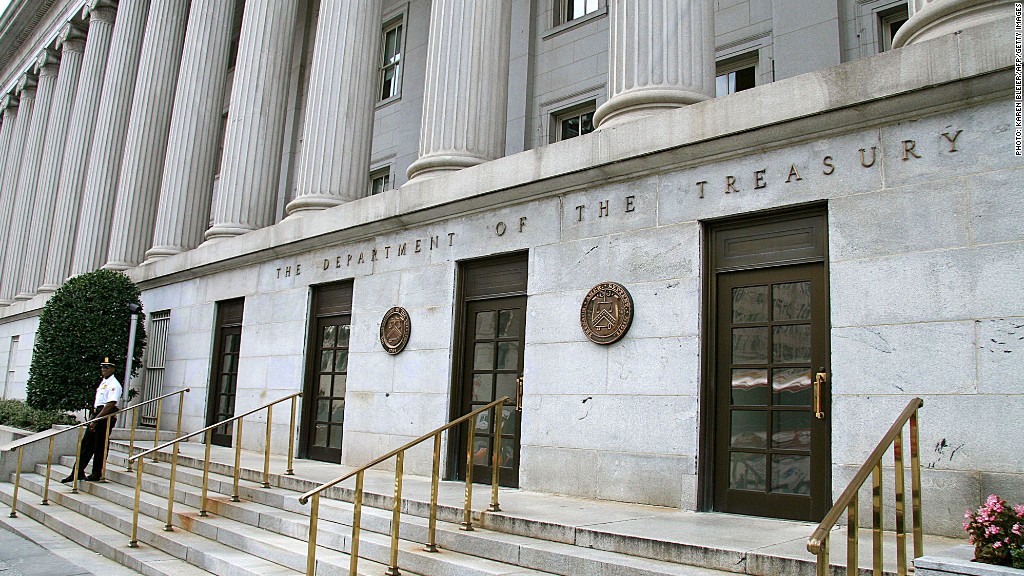
Thursday, October 17, is now just hours away.
And Congress still has not raised the country's debt ceiling.
At this point, there's a very good chance it won't make the Thursday deadline.
If it doesn't, here's a look at what may -- and may not -- happen that day and soon after.
What exactly happens Thursday? For starters, the sun will rise. But everyone's blood pressure may, too.
That's because Thursday marks the day the Treasury Department will run out of special accounting maneuvers to keep the nation under the legal borrowing limit.
So from that point on, it will have to pay the country's incoming bills and other legal obligations with an estimated $30 billion in cash, plus whatever daily revenue comes in.
The expectation is that Treasury will be able to pay bills in full for a short time after Thursday. Just how long isn't known. According to the best outside estimates, the first day Treasury will run short of cash to pay what's due could come between October 22 and November 1.
So there may not be a lot of big changes on Thursday itself. But the pressure on Congress to act quickly will almost certainly intensify, both from the markets and from other countries, which would be hurt if the U.S. Treasury market and economy become less stable.
Related: Real debt ceiling risk
What are the risks? The assumption that lawmakers, in effect, may have a little time after Thursday to raise the ceiling before Treasury faces its first real cash crunch could be blown out of the water if the unthinkable happens -- a Treasury auction fails.
On Thursday, the Treasury has to roll over $120 billion in outstanding debt. That means it needs to issue new debt to pay off the principal on the old debt coming due. Usually in such auctions the holders of the maturing debt simply "roll over" their investment into the new bonds that Treasury issues.
But if they decide to cash out instead and there aren't enough buyers for the new debt to replace them, Treasury would be on the hook to pay off the old bonds in full. Treasury Secretary Jack Lew likened that to having to pay off one's entire mortgage instead of just having to make a month's mortgage payment.
Another rollover auction to replace $93 billion in outstanding debt will be held a week later,
A failed auction is a worst-case scenario that may never come to pass. But were it to happen, Treasury could start defaulting on some of the country's obligations immediately thereafter since its cash and revenue would be tapped out.

How will Wall Street respond? Financial institutions still hope and expect that Congress will do what must be done before it comes to default. But they are being forced to consider the possibility and to plan for it.
Stocks are likely to be volatile. If Thursday comes and goes, and Congress then takes days to raise the debt ceiling, your 401(k) may well take a big hit.
The likely bond market response is less clear. Conventional wisdom suggests rates on Treasuries could jump in the face of default. Some market watchers, however, actually think bond rates could fall or at least not rise very much, assuming a default is short-lived.
But very short-term bonds may still be vulnerable. "Our understanding is that Treasury will determine payments/postponements on a day-by-day basis. Securities that are coming due in the short-term may be be less attractive to hold and may become harder to finance," the Securities Industry and Financial Markets Association said.
As it is, yields on short-term Treasuries have spiked in the past few weeks. And some of the world's biggest money market funds have already sold all Treasuries due in late October and early November to protect against the default risk.
SIFMA, headed by former Senator Judd Gregg, has already announced it will start holding several calls a day starting on Wednesday to update market players on the situation. It has said it believes systems can handle it if Treasury has to delay payments on a bond.
But the group noted that the timing of Treasury's announcements will be key if it has to delay a payment. Translation: Early notice will minimize potential disruptions. But the mere fact of a missed payment is likely to upset investors and have negative knock-on effects.
What's the break-the-glass plan? President Obama has said the White House and Treasury are planning for "all contingencies." Neither he nor Lew has yet detailed what those plans entail. Perhaps they will soon. But Obama warned that none of them are good options.
The expectation is that Treasury will do what it can to make sure bond investors are paid in full and on time. But Treasury has not said so, and to the contrary has said it will be very hard to prioritize payments to anyone.
There is also some speculation that Obama may act unilaterally to authorize Treasury to continue borrowing. The White House has pushed back against that idea, noting that it would be legally controversial and could call into question the legitimacy of the debt Treasury is issuing.



